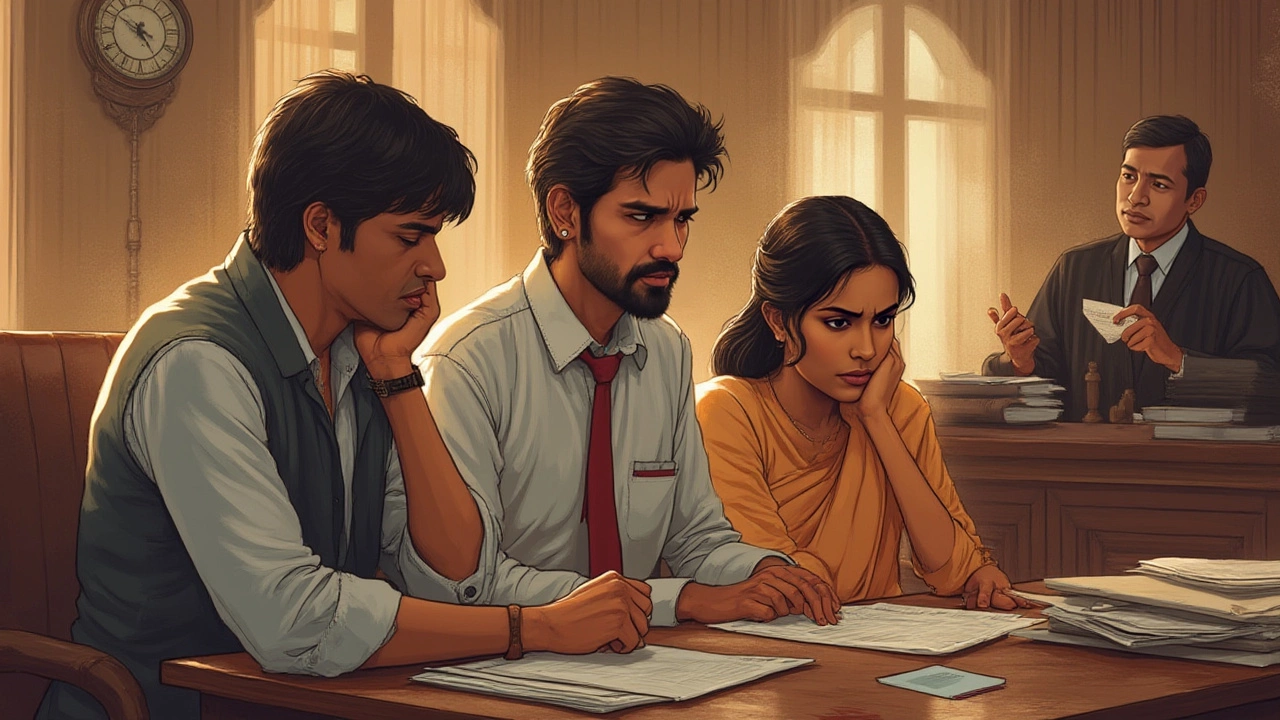Contested Divorce in India – A Straightforward Guide
Thinking about a divorce but your spouse isn’t on board? That’s a contested divorce. Unlike an uncontested split where both parties agree, a contested case means you’ll have to go to court and prove why the marriage should end. It can feel overwhelming, but knowing the steps helps you stay in control.
How a contested divorce works
First, you file a petition in the family court. The petition lists the reasons for divorce – adultery, cruelty, desertion, or any ground recognized by the Hindu Marriage Act, Special Marriage Act, etc. Once filed, the court sends a notice to your spouse, who then has to respond within the legal time frame, usually 30 days.
If your spouse contests, the case moves to the pleading stage. Both sides exchange written statements, documents, and evidence. This is where you’ll need proof – medical reports, police FIRs, messages, or witness statements – to back up your claims.
After pleadings, the court schedules a series of hearings. Early on, a magistrate may try to mediate the parties. If mediation fails, the case proceeds to trial. The trial can involve examining witnesses, cross‑examination, and presenting expert opinions. Finally, the judge delivers a verdict, which may include alimony, child custody, and division of property.
Tips to handle a contested divorce
1. Get a specialized lawyer early. A family law attorney familiar with contested divorces can guide you on the right grounds, gather evidence, and draft a strong petition. Their experience often speeds up the process.
2. Keep every piece of evidence. Save texts, emails, call logs, bank statements, and any documents that show the ground for divorce. Even small things can become crucial in court.
3. Stay calm during hearings. Courtrooms can be stressful, but staying composed helps you present your case clearly. Bring a trusted friend or relative for moral support if allowed.
4. Focus on the kids. If children are involved, the court looks at their best interests. Try to keep conflict away from them and be ready to discuss custody, visitation, and support clearly.
5. Be ready for costs. Contested divorces can be pricey – lawyer fees, court fees, filing fees, and possible expert witness costs. Ask your lawyer for an estimate and plan your budget.
Lastly, remember that a contested divorce doesn’t have to drag on forever. Many cases settle after a few hearings when both sides see the strengths and weaknesses of their positions. Being open to a fair settlement can save you time, money, and emotional strain.
If you’re staring at a contested divorce, start by consulting a qualified family law attorney. Their guidance, combined with solid evidence and a clear plan, puts you in the best spot to protect your rights and move on with confidence.
How Long Does Divorce Take in India? Timelines, Processes, and Tips to Fast-Track Your Divorce
Curious about how long divorce can take in India? Explore timelines, the steps, and ways to speed things up. Clear answers, useful tips, and real facts inside.
